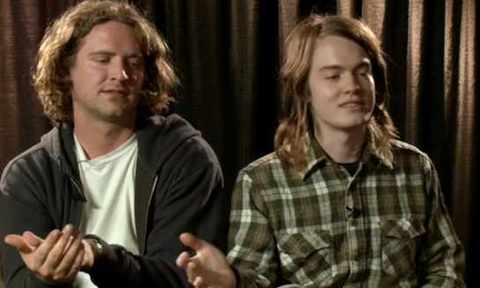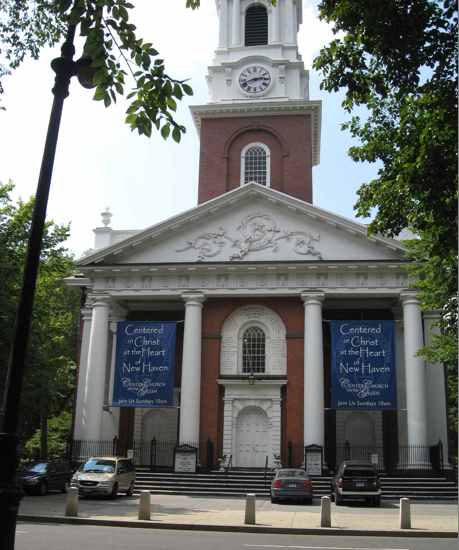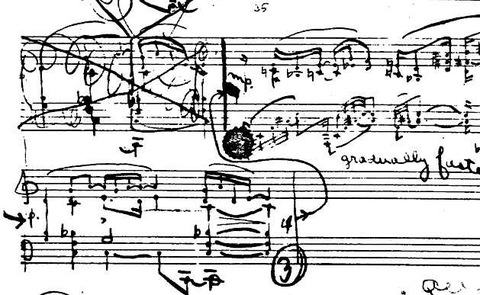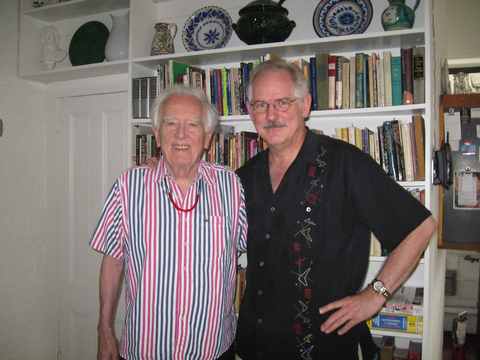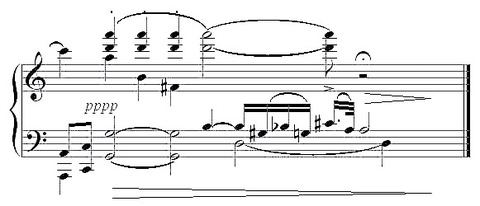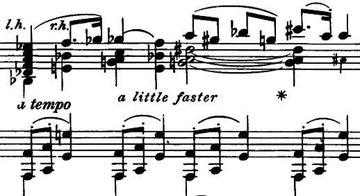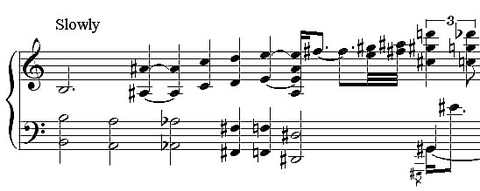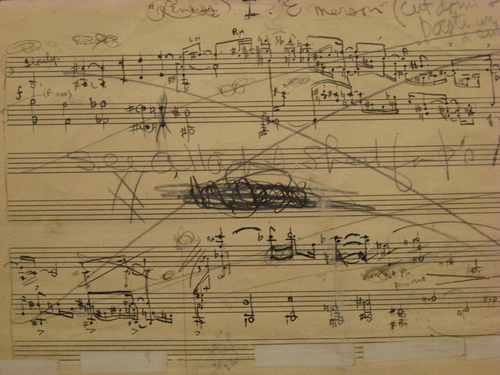PostClassic: August 2010 Archives
The grim history of the twentieth century - something Brahms or Franck could never have foreseen, to say nothing of Matthew Arnold or Charles O'Connell - played its part as well both in discrediting the idea of redemptive culture and in undermining the authority of its adherents. The literary critic George Steiner, one such adherent, after a lifetime devoted (in his words) to "the worship - the word is hardly exaggerated - of the classic," and to the propagation of the faith, found himself baffled by the example of the culture-loving Germans of the mid-twentieth century, "who sang Schubert in the evening and tortured in the morning." "I'm going to the end of my life," he confessed unhappily, "haunted more and more by the question, 'Why did the humanities not humanize?' I don't have an answer." But that is because the question - being the product of Arnoldian art religion - turned out to be wrong. It is all too obvious by now that teaching people that their love of Schubert makes them better people teaches them little more than self-regard. There are better reasons to cherish art.
- Richard Taruskin, Music in the Nineteenth Century, p. 783
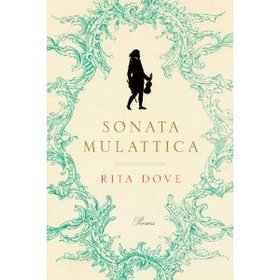
In The Barrow, I was going through poetry, and my eye ran across a title: Sonata Mulattica. I did a double take, chuckled in surprise. I tried to keep going. I looked at it again. I took it out, read a poem, put it back and moved on. But the book virtually leapt back into my hands. It's by Rita Dove, African-American poet who was poet laureate from 1993 to 1995. How can it be that the national poet laureate receives so little fanfare that I can fail to have heard of her 15 years later?
Anyway, Sonata Mulattica is an entire book of poems about a single subject: Beethoven's writing the Kreutzer Sonata for the "African prince" violinist George Augustus Polgreen Bridgetower, falling out with him over a woman, and then dedicating the piece to Rodolphe Kreutzer instead. Dove uses lots of musical terminology, all correctly - in youth she played the cello, apparently - and her characterizations ring true and tired and humble, with none of the pompous mythologizing that attends portraits of great composers. Poem after poem after poem on this one moment in history, some from Bridgetower's perspective, some from Beethoven's, some from that of minor characters, and some of my favorites are about Haydn, who encouraged Bridgetower. This one is titled Haydn, Overheard (I'll refrain from entire poems for copyright reasons):
It is a sad thing always
to be a slave
but if slave I must, better
the oboe's clarion tyranny
than a man's cruel whims.
I stayed on at Esterhaza,
writing music for the world
between spats and budgets,
with no more leave
to step outside the gates
than a prize egg-laying hen.
Even after Miklós died
and his tone-deaf son
filled the courtyard
with military parades,
I hesitated: Call it
robbing Peter to pay Paul,
but I had been homeless once
and did not care for hunger....
But the finest gift I ever received
was the vision of Johann Peter Salomon
with his flamboyant nose and cape
swirling across my doorstep:
"I've come to fetch you," he said.
It was December. We set out
from Vienna on the fifteenth
for London, that great free city.
And here's Bridgetower, in a poem called Andante con Variazioni:
Thank you. It was a privilege. You are so kind.
It is all his doing; I am merely the instrument.
To have the honor of this premiere...
a beauty of a piece, indeed.
What an honor! Countess, I am enchanted.
I only wish I could better express my gratitude
in your lovely language: Vielen Dank.
It is all his - why, thank you, sir, I am speechless....
Herr van Beethoven is indeed a Master, and Wien
an empress of a city. My apologies -
I only meant that she is... magnificent.
(Ludwig, get me out of here!)
[UPDATE: In an attempt to better do the book justice, here's Beethoven:
Call me rough, ill-tempered, slovenly - I tell you,
every tenderness I have ever known
has been nothing
but thwarted violence, an ache
so permanent and deep, the lightest touch
awakens it... It is impossible
to care enough. I have returned
with a second Symphony
and 15 Piano Variations
which I've named Prometheus,
after the rogue Titan, the half-a-god
who knew the worst sin is to take
what cannot be given back.
I smile and bow, and the world is loud.
And though I dare not lean in to shout
Can't you see that I am deaf? -
I also cannot stop listening.]
It's a lovely book, a theme with variations indeed, and from every possible perspective. I could imagine reading about this episode and writing a poem, but an entire book of poems and so musically intelligent - it's quite astonishing. I considered ordering it as a textbook for my Beethoven course this fall, but I think I'll just put it on reserve, and make a much bigger deal than usual about the Kreutzer Sonata, which is one of my favorite middle Beethoven pieces anyway. Rita Dove: Sonata Mulattica (2009): highly recommended. And it's why internet shopping is not enough. I would never have run across this book on the internet, never known to Google "poems about Beethoven," never known who Dove was. Occasionally you have to walk into a really good, independent bookstore and finger every book on the shelves.
I also ran across The Thoreau You Don't Know (also 2009) by Robert Sullivan. It looks and sounds like a facile compendium of Thoreavian esoterica, but it's actually a brilliant revisionist biography, with the contradictory virtues of being breezily written yet withal extremely erudite. Its ostensive purpose is to rescue Thoreau's reputation from those who think he was an antisocial "Mr. Nature," by emphasizing the year he spent in New York City trying to get a start as a writer, the time he spent in court as expert witness for property disputes (being a surveyor), and his wise handling of the family pencil business. Having not had a superficial view of Thoreau myself (the book convinced me), I didn't need the revisionism, but I was impressed with how much mass culture Sullivan delved into in order to anchor Thoreau in his immediate society, researching 1840s sheet music and ladies' magazines, and the changes in agriculture brought about by the depression of 1837. The bibliography is kaleidoscopically diverse. Oxymoronically a thought-provoking page-turner, the book is a worthy opposite bookend to Robert D. Richardson's more introverted Henry Thoreau: A Life of the Mind.
For the purposes of this program:
• An Uptown Artist is an artist who lives and/or focuses their creative activities or aesthetic above 110th Street.
• A Downtown Artist is an artist who lives and/or focuses their creative activities or aesthetic south of 14th Street.
They noted that there were certain things which were impermanent and other things to which the word impermanence did not apply. - Perfect Lives
Sites To See
AJ Blogs
AJBlogCentral | rssculture
Terry Teachout on the arts in New York City
Andrew Taylor on the business of arts & culture
rock culture approximately
Laura Collins-Hughes on arts, culture and coverage
Richard Kessler on arts education
Douglas McLennan's blog
Dalouge Smith advocates for the Arts
Art from the American Outback
Chloe Veltman on how culture will save the world
For immediate release: the arts are marketable
No genre is the new genre
David Jays on theatre and dance
Paul Levy measures the Angles
Judith H. Dobrzynski on Culture
John Rockwell on the arts
innovations and impediments in not-for-profit arts
Jan Herman - arts, media & culture with 'tude
dance
Apollinaire Scherr talks about dance
Tobi Tobias on dance et al...
jazz
Howard Mandel's freelance Urban Improvisation
Focus on New Orleans. Jazz and Other Sounds
Doug Ramsey on Jazz and other matters...
media
Jeff Weinstein's Cultural Mixology
Martha Bayles on Film...
classical music
Fresh ideas on building arts communities
Greg Sandow performs a book-in-progress
Harvey Sachs on music, and various digressions
Bruce Brubaker on all things Piano
Kyle Gann on music after the fact
Greg Sandow on the future of Classical Music
Norman Lebrecht on Shifting Sound Worlds
Joe Horowitz on music
publishing
Jerome Weeks on Books
Scott McLemee on books, ideas & trash-culture ephemera
theatre
Wendy Rosenfield: covering drama, onstage and off
visual
Public Art, Public Space
Regina Hackett takes her Art To Go
John Perreault's art diary
Lee Rosenbaum's Cultural Commentary
